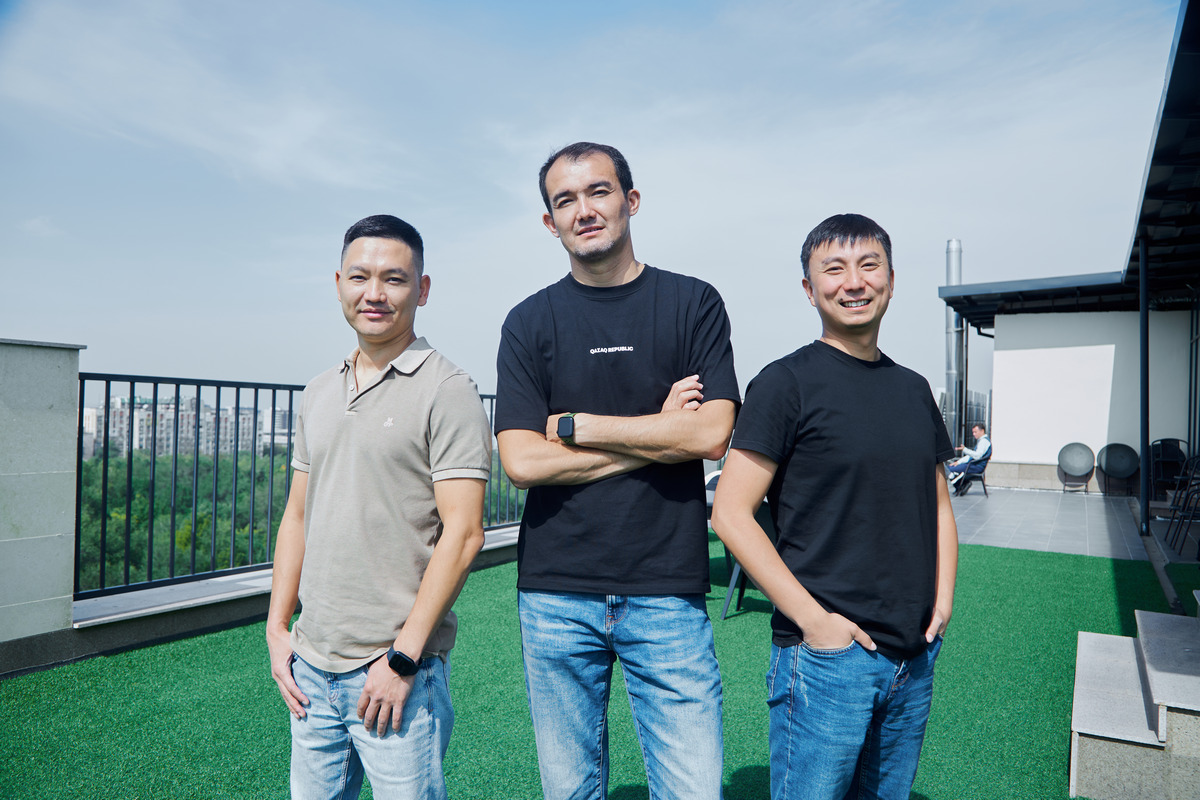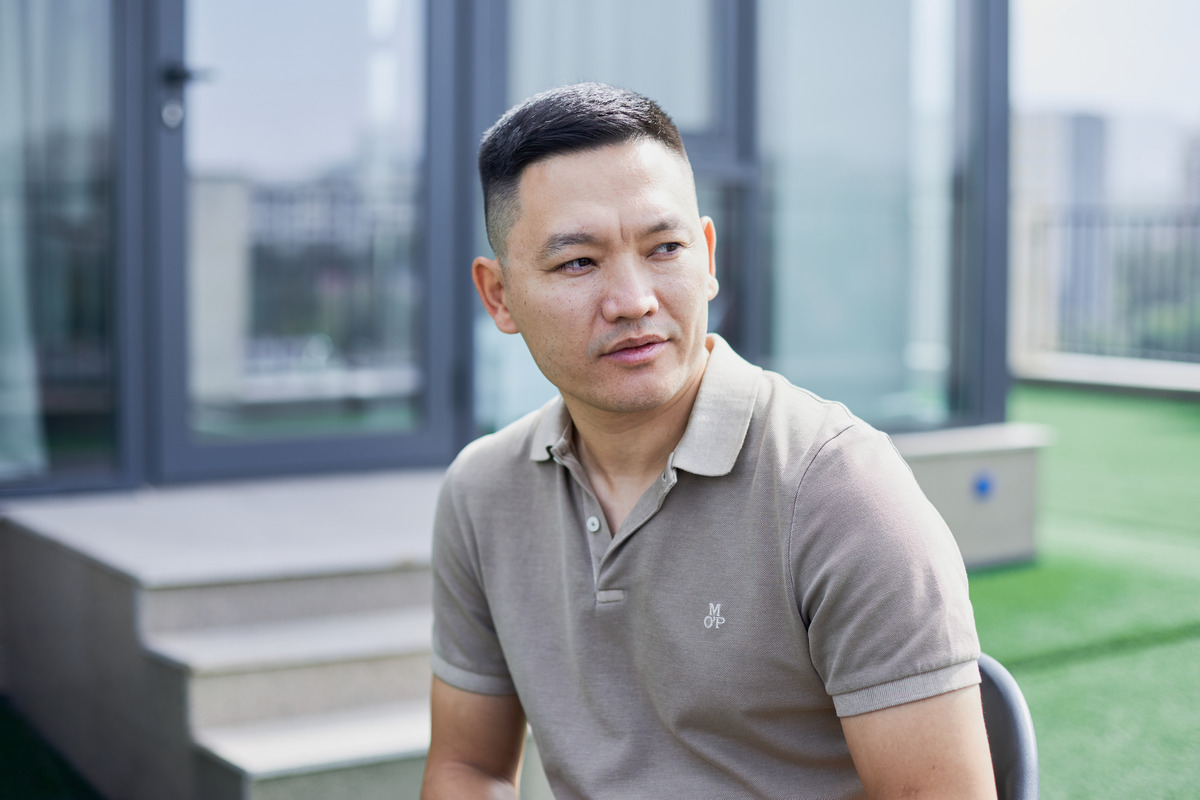The journey of Beksar startup: how Kazakhstani innovators crafted software from the ground up for complete store digitalization

Several years ago, Maksat Bektibayev, Bauyrzhan Sarsembayev, and Aidyn Temekov were expanding their store chains in Kazakhstan. The three individuals were brought together by a shared challenge: none of them could consolidate comprehensive data on income, expenses, and inventory balances in a single location. They experimented with different software solutions. However, when they grew weary of repeated setbacks, they took matters into their own hands and developed the software they required.
Their venture goes by the name Beksar, which facilitates the complete digitalization of sales data, gathering all necessary information on a laptop or mobile phone. More than 2,300 stores throughout Kazakhstan rely on the services offered by this startup. Naturally, none of the company's founders has any intentions of resting on their laurels. To discover how the project began and what lies ahead in the future, read the interview with Maksat and Aidyn in Digital Business, as part of the collaborative initiative with Astana Hub titled “100 Startup Stories of Kazakhstan.”
“It took me two years of effort to automate my chain of stores. And this program enabled me to achieve it in just four days”
— What issues does your startup address and how?
Maksat: — Beksar specializes in automating small and medium-sized businesses, particularly in the retail sector, including stores. Our team has extensive experience in retail: I dedicated nine years to building my chain, Bauyrzhan Sarsembayev invested five years, and Aidyn Temekov brought a background in both retail and IT to the table.

Maksat Bektibayev
Our startup emerged from a significant challenge. With stores spanning six cities in Kazakhstan, I invested tens of millions of tenge into automating our processes and accounting. In 2020, there was virtually no effective solution available for small and medium-sized businesses. While systems like 1C existed, they only offered partial solutions to the problem.
— Could you please clarify what you mean by automation?
Aidyn: — The operations of every store encompass sales, cash management, inventory tracking, warehouse management, loyalty programs, and various other crucial elements. All of these functions should be consolidated within a single application, easily accessible with a single click. This approach helps prevent situations where entrepreneurs are overwhelmed by a multitude of programs, each serving a single function and causing unnecessary complexity.

Aidyn Temekov
In straightforward terms, Beksar enables the full digitalization of your store. In the past, the process involved a person using a notebook or, in a more advanced scenario, an Excel spreadsheet to manually record all sales and perform calculations. This method didn't provide real-time visibility into inventory balances. Our program can take this notebook and transform it into a digital format on the entrepreneur's laptop, tablet, or mobile phone, conducting all accounting tasks in real-time.
— Just to clarify, do food supermarkets fall within your client base?
Maksat: — No, food retail is a specific sector with sufficient decent solutions, making it an exception for us. We cater to all other segments of the retail industry.
— Each of you had your own store chains that you gave up for the startup. Did you envision such significant potential in Beksar?
Maksat: — For two years, I struggled to automate my chain across six cities in Kazakhstan, and it proved to be unsuccessful. However, when Beksar helped me complete this process in just four days, something shifted in my perspective. I realized, “There is a viable solution, and tens of thousands of stores in Kazakhstan surely require it.”
Furthermore, had I remained the owner of the chain, I would have adhered to the conventional approach. I would have expanded the stores incrementally, one store at a time, city by city. However, in a 20-year outlook, this approach wouldn't have allowed me to create something substantial.

Conversely, our software enables us to encompass tens of thousands of stores in Kazakhstan at a pace several times faster. And let's not overlook the potential for expansion into international markets. In essence, our startup offers far greater scaling opportunities.
“90% of retailers cannot provide an answer when asked about their net revenue”
— Could you offer more insight into the advantages that Beksar brings to entrepreneurs? Does it result in savings in terms of time and resources? Specifically, how does your product transform the operations of stores?
Maksat: — I firmly believe that a significant portion, approximately 90%, of SME retailers today would struggle to respond to the question, "What is your net revenue?" They often lack clear answers when it comes to their profitability and margins.
Most people have a good grasp of their expenditures, but few have a clear understanding of their earnings. For entrepreneurs with multiple stores, the inability to answer such questions can be both risky and uncomfortable. One day, an entrepreneur might wake up believing they are operating at a loss, and the next day, they may find money in their account and assume everything is reasonably fine. However, this shouldn't be the case.
Aidyn: : — Many individuals aren't even aware of the exact value of their inventory. There have been instances where we arrived to digitize a warehouse and inquired about the inventory's monetary value, only to receive a response like, "Not more than 3 million tenge." However, after some time, we'd present a report revealing that the inventory was actually worth 8 million tenge. It's astonishing how unaware some people can be about their own inventory value!
Maksat: — This situation applies to businesses of all sizes. Recently, we undertook the digitization of a retail chain. According to the owner's estimates, the inventory's value in stock was 200 million tenge. However, the inventory count revealed that it amounted to 1 billion tenge. When we disclosed this figure, the businessman was utterly stunned. He remained silent for half an hour, only repeating, "It can't be true."
“After implementing the software, I remarked, ”We should sell all the stores and transition to IT.”
— At what point did you commence the product's development?
Aidyn: — The initial version of the program emerged in 2019. During this period, I had just launched my gift shop and quickly grew weary of the continuous manual record-keeping for sales and inventory balances in a notepad. Within a week, I found myself overwhelmed by the numbers.

During that period, my challenges could have been partially alleviated with 1C, albeit not entirely. Unfortunately, I lacked the financial resources to acquire and integrate the system. Consequently, as a developer myself, I made the decision to create software from scratch. I developed a solution, tested it in my store, and shared it with friends for testing. Through word of mouth, my product reached the attention of Maksat and Bauyrzhan.
Maksat: — I recognized that it was an excellent interface created by an entrepreneur for entrepreneurs right away. However, it had some shortcomings, and the functions needed improvement. Despite these weaknesses, I managed to automate my chain in just four days, relieving a significant burden. I vividly recall sharing my achievement with Bauyrzhan and declaring, “That's it. We're selling the stores and transitioning to IT.” That's how I and Bauyrzhan crossed paths with Aidyn, and the three of us began collaborating together.
— Would it be accurate to say that the program was Aidyn's brainchild, and its transformation into a functional product was the collective achievement of all three of you?
Aidyn: — That is indeed correct.
— What kind of relationships did you have before you joined forces to work together?
Maksat: — Bauyrzhan and I were friends, while Aidyn was more of a casual acquaintance through phone calls. In the middle of 2020, we finally shook hands and made the decision to start working together.

Aidyn: — I received a phone call from Maksat, who proposed a meeting to discuss the software. During our conversation, we both agreed that the product had tremendous potential and could truly take off.
To be completely honest, during that period, I didn't have much faith in the program myself. I was simply sharing it with my friends for testing purposes. However, when the guys came along with a clear vision and solid proposals, we decided to explore the possibility of working together as partners. Over the course of a year, our relationships deepened, and we eventually became close friends, solidifying our commitment to move forward together.
Maksat: — Our agreement was quite straightforward: if we couldn't attract our first users and at least break even within a month, we'd close the project and return to our individual businesses. The thought of not being profitable never crossed our minds. Fortunately, everything went exceedingly well, and within eight months, we managed to establish a network of branches in 17 cities across Kazakhstan.
— Did the software genuinely gain significant popularity within the initial month of your operations?
Maksat: — Not quite. In our business, we have several sources of income. The first one is the subscription fee for using the program.
The second source of income involves the sale of equipment, which includes items like printers, scanners, and other necessary appliances required in stores.
The third source of income pertains to the integration and installation of the equipment.
The fourth source of income involves consulting. Given our extensive background in retail, we were able to offer consulting services to other entrepreneurs, which proved to be quite lucrative in the initial stages. However, we soon hit a ceiling of 6 million tenge in monthly net profit.
Aidyn: — With the exception of the subscription fee, all our income sources generated relatively modest yet consistent profits. Initially, we reinvested these profits into further software development. Consequently, we witnessed an increase in the adoption of the program. Remarkably, we achieved results within the very first month of our operations, sealing deals with approximately 50 sales points, as far as I can recall.

“Today, 76% of clients who have previously engaged with Beksar continue to utilize our software”
— What objections or resistance did you encounter from store owners when attempting to market your product?
Maksat: — We had a set of questions ready for those who expressed doubts. For instance, one of our questions was, "Do the actual inventory balances align with the figures on paper?" About 90% of entrepreneurs responded with either "No," or they mentioned that they don't track balances in other programs and rely on their accountants for such tasks.
Another question we posed was, "How do you manage your business expenditures?" Surprisingly, many entrepreneurs relied on either handwritten notes or another additional (and paid) software solution to control their business expenses.
Following this, we emphasize that such an approach is not suitable for modern business practices. We present our solution, which streamlines the process by consolidating all your store data into one program. Currently, 2,300 sales points throughout Kazakhstan are successfully using our platform, so we encourage you to give it a try. Additionally, it's worth noting that 76% of clients who have previously partnered with Beksar continue to rely on our software.
Generally, these arguments suffice to dispel doubts for the majority of potential clients.

“We kept our distance from the startup community for an extended period because we couldn't comprehend how it was feasible to operate for six months without generating any profit”
—I'm aware that in the initial years, you avoided involvement with the Kazakhstan startup community. However, today, you've begun to embrace it. What prompted this change?
Maksat: — It is true. For two years, we completely distanced ourselves from the startup community because we couldn't comprehend these people. How can you work for six months and not earn anything?
Following that, we received an invitation from Bagdat Musin to take part in the Pizza Pitch event hosted by Astana Hub. There were also several engagements within the international technopark.
Subsequently, we discovered that we had friends within the IT and startup community who could eventually generate income. For quite some time, we relied on them for information about the community.
Recently, Beksar became a part of the Most Hub program. Initially, we entered this accelerator without a clear sense of necessity and without a full understanding of its potential benefits. However, it became evident that the program could provide us with highly practical knowledge.

Aidyn: — For instance, we began adopting the use of sprints. This approach is quite innovative for traditional businesses. Thanks to it, within just a couple of months, we were able to test a multitude of hypotheses.
— Could you provide some examples of the interesting hypotheses that you put to the test?
— Maksat: — For instance, we had a longstanding desire to offer short-term loans to our clients. This idea was particularly promising for our company because we possessed an in-depth knowledge of a sales point, surpassing that of any government authority.
Retail always entails the acquisition of goods and the need for increasing turnovers, which in turn requires capital. For about six or seven months, we only deliberated on this concept. Then, within just two months, we established partnerships with crowdfunding platforms and other investment firms. We gathered leads from individuals in need of loans, totaling 700 million tenge. Although we only provided 30 million tenge, it was a commendable figure for the pilot launch.
Yesterday (the interview took place on 19 September 2023 - Digital Business), we signed an agreement with a Kazakhstani bank to incorporate their lending and factoring product into Beksar.
There are numerous other hypotheses regarding the scaling of our business, but we'll share them at a later time.


